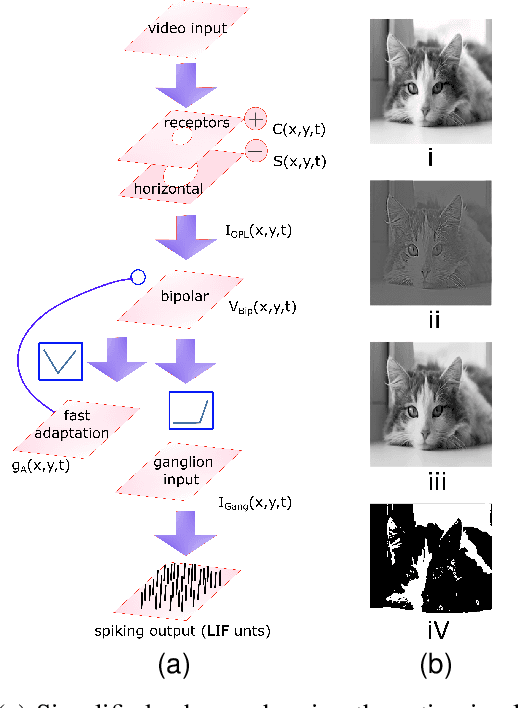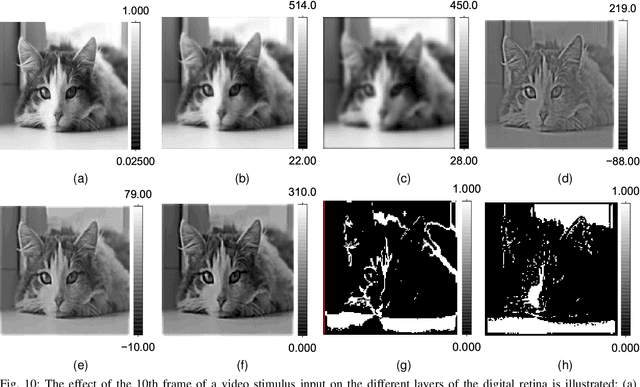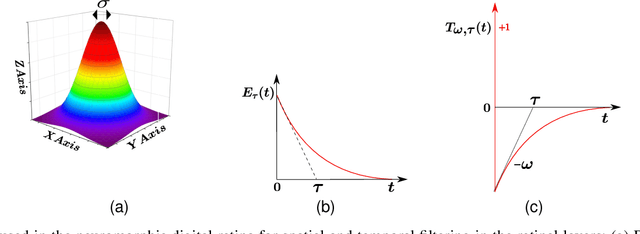Neuromorphic Retina: An FPGA-based Emulator
Paper and Code
Jan 15, 2025



Implementing accurate models of the retina is a challenging task, particularly in the context of creating visual prosthetics and devices. Notwithstanding the presence of diverse artificial renditions of the retina, the imperative task persists to pursue a more realistic model. In this work, we are emulating a neuromorphic retina model on an FPGA. The key feature of this model is its powerful adaptation to luminance and contrast, which allows it to accurately emulate the sensitivity of the biological retina to changes in light levels. Phasic and tonic cells are realizable in the retina in the simplest way possible. Our FPGA implementation of the proposed biologically inspired digital retina, incorporating a receptive field with a center-surround structure, is reconfigurable and can support 128*128 pixel images at a frame rate of 200fps. It consumes 1720 slices, approximately 3.7k Look-Up Tables (LUTs), and Flip-Flops (FFs) on the FPGA. This implementation provides a high-performance, low-power, and small-area solution and could be a significant step forward in the development of biologically plausible retinal prostheses with enhanced information processing capabilities
 Add to Chrome
Add to Chrome Add to Firefox
Add to Firefox Add to Edge
Add to Edge